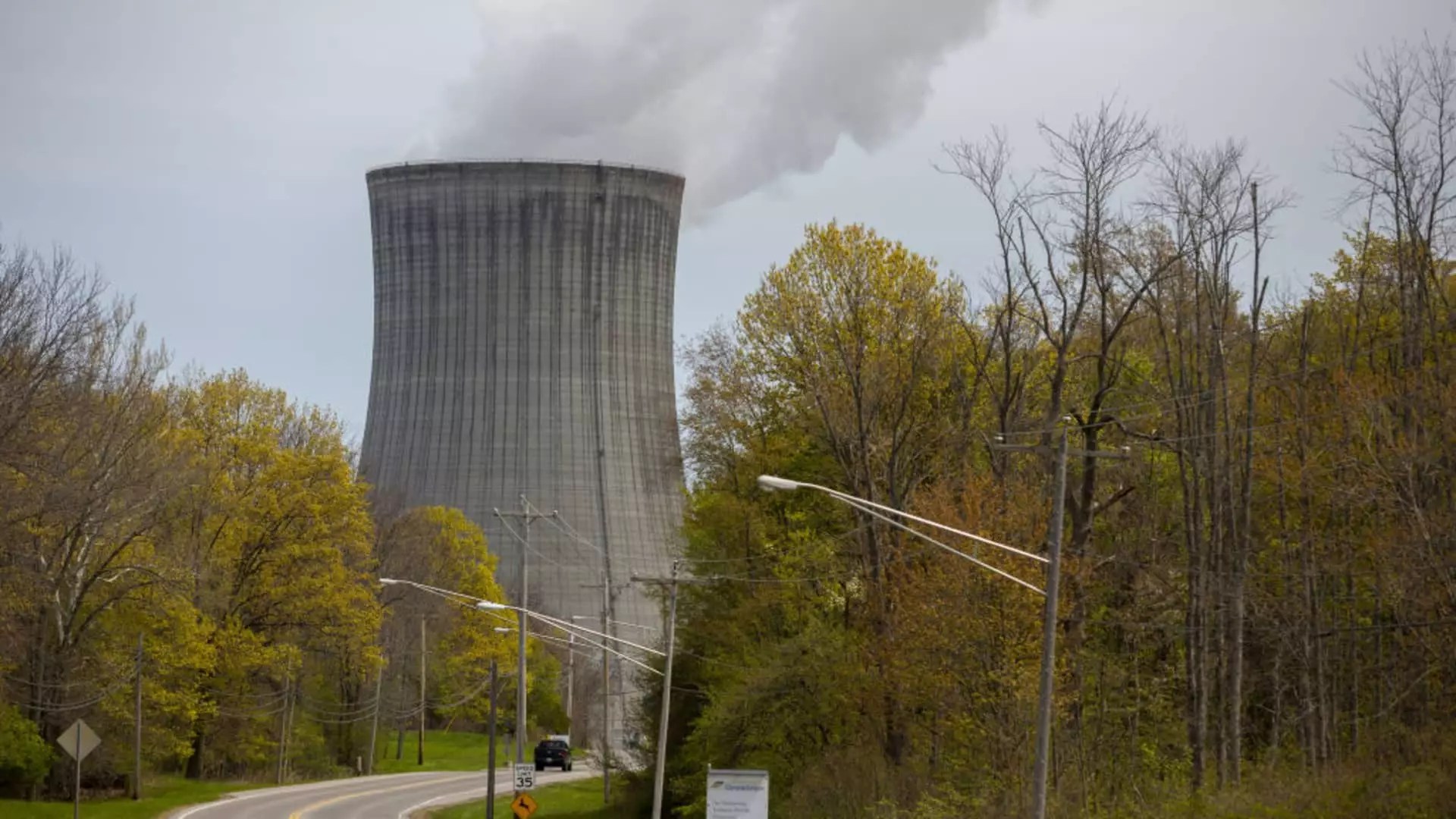In the race to secure clean energy to power artificial intelligence, tech companies are increasingly looking to directly connect data centers to nuclear plants. This move has sparked resistance from some utilities over the potential impact on the electric grid. Data centers are essential to U.S. economic competitiveness and national security, especially as the country competes with adversaries like China in the development of AI.
Data centers, which are the backbone of the Internet, now require a significant amount of power, comparable to the average capacity of a nuclear reactor in the U.S. With the retirement of coal plants and the increasing demand for power from domestic manufacturing and vehicle electrification, power supply is becoming increasingly constrained. PJM Interconnection, the largest grid operator in the U.S., has warned that power supply and demand are tightening as new generation lags behind demand.
While connecting data centers directly to nuclear plants, known as co-location, is seen as a cost-effective way to support the growth of data centers without burdening consumers with the costs of building new transmission lines, it faces controversy. Amazon Web Services’ acquisition of a data center powered by the Susquehanna nuclear plant in Pennsylvania has faced opposition from utilities like American Electric Power and Exelon. These utilities argue that such agreements set a precedent that could result in less available power in the grid area.
The agreements between tech companies and nuclear plant operators have led to regulatory challenges, with complaints being filed at the Federal Energy Regulatory Commission (FERC). Utilities have raised concerns about the potential harm to existing customers and the impact on the transmission system. FERC has requested more information on these service agreements and is planning a conference to discuss the issues associated with connecting large electricity loads directly to power plants.
Despite the controversy surrounding co-location, companies like Constellation Energy and Vistra Corp. have backed the agreements between tech companies and nuclear plant operators. They believe that a combination of co-location and traditional grid connection will be necessary to meet the growing demand for power from data centers.
As tech companies look to nuclear power to meet the energy demands of data centers, there is a need to balance the power needs of these facilities with those of all consumers. Holtec International, a nuclear company based in Florida, has emphasized the importance of ensuring that consumers receive their fair share of power amidst the growing demand from hyperscalers and data centers.
The trend of connecting data centers directly to nuclear power plants represents a shift in the energy landscape as tech companies seek clean and reliable sources of power for their operations. While this move is not without its challenges and controversies, it highlights the growing importance of sustainable energy solutions in the age of rapid technological advancement. Balancing the needs of data centers and consumers will be crucial in ensuring a stable and efficient power supply for all.


Leave a Reply